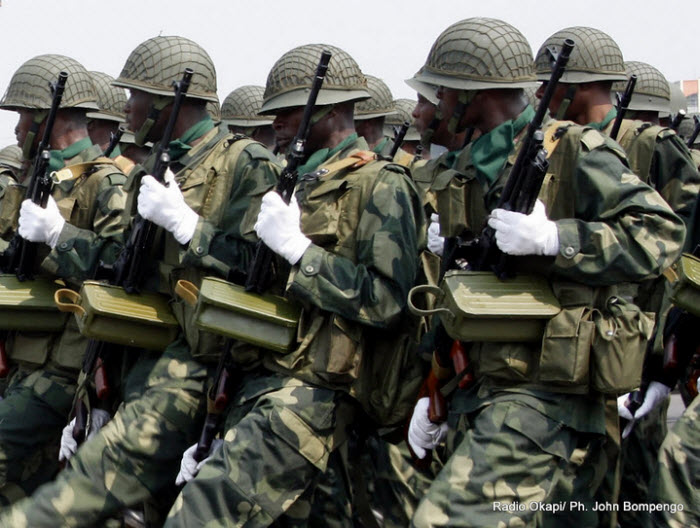On July 23rd, campaigners from the Cri de Secours contre la Prolifération des Armes Légères (Emergency Call against the Proliferation of Small Arms in Africa – CRISPAL- Afrique) delivered a memorandum to the Governor of the Nord-Kivu province in the Democratic Republic of Congo (DRC). The document calls for accession of the Arms Trade Treaty by the DRC, in order to “stop the flow of arms and ammunition that feed conflict, poverty and human rights violations in the DRC.”
Video by CRISAL – Afrique, English subtitles available.
The DRC is no stranger to the devastating consequences of the poorly regulated arms trade. Although the Second Congolese War ended in 2003, violence between armed groups remains a pressing issue, particularly in eastern regions, including Itur, Nord-Kivu and Sud-Kivu. The Conflict Risk Diagnostic estimated that 1.7 million civilians were displaced due to violence in 2017.
Starting in the 1990s, an influx of refugees escaping the Rwandan genocide threatened the stability of the Democratic Republic of Congo. This crisis sparked a war that involved multiple African countries, killed an estimated 5 million people, and led to the formation of various Congolese armed groups. Despite the formal end to the conflict, these militias still operate, displacing thousands of civilians as they compete for land and power.
This cyclical violence is perpetuated by small arms and light weapons flowing into the country seemingly unabated.
Current restrictions imposed by the UN on arms exports to the DRC have proven insufficient. For instance, current regulations regarding arms transfers to DRC security forces (FARDC) only require exporting nations to notify the Sanctions Committee of the proposed transfer. Other states, including Sudan, China and North Korea, do not consistently report their transfers to the Sanctions Committee. Irresponsible transfer of ammunition from Sudan and Iran to the DRC have also been widely documented.

Armed Forces of the Democratic Republic of the Congo (FARDC)
Diversion likewise exacerbates security challenges. The Stockholm International Peace Research Institute (SIPRI) has found that FARDC units are involved in the diversion of arms to militias, while the lack of stockpile security further aggravates this problem.
In joining the ATT, the DRC would gain an opportunity to raise these and many other concerns over irresponsible transfers. Challenges resulting from the diversion of arms and ammunition could meaningfully be discussed with other states, including urging transit and transhipment states who are currently states parties to the ATT to comply with their ATT obligations.
Weapons exported to the DRC are used by both state and non-state groups to commit numerous human rights abuses. Persistent problems with accountability, stockpile security, and diversion of arms and ammunition will continue unabated if the DRC does not accede and robustly implement the ATT’s provisions. The Democratic Republic of Congo is long overdue to participate in international efforts to reduce the human suffering within its borders and beyond.


This information is invaluable. How can I find out more?